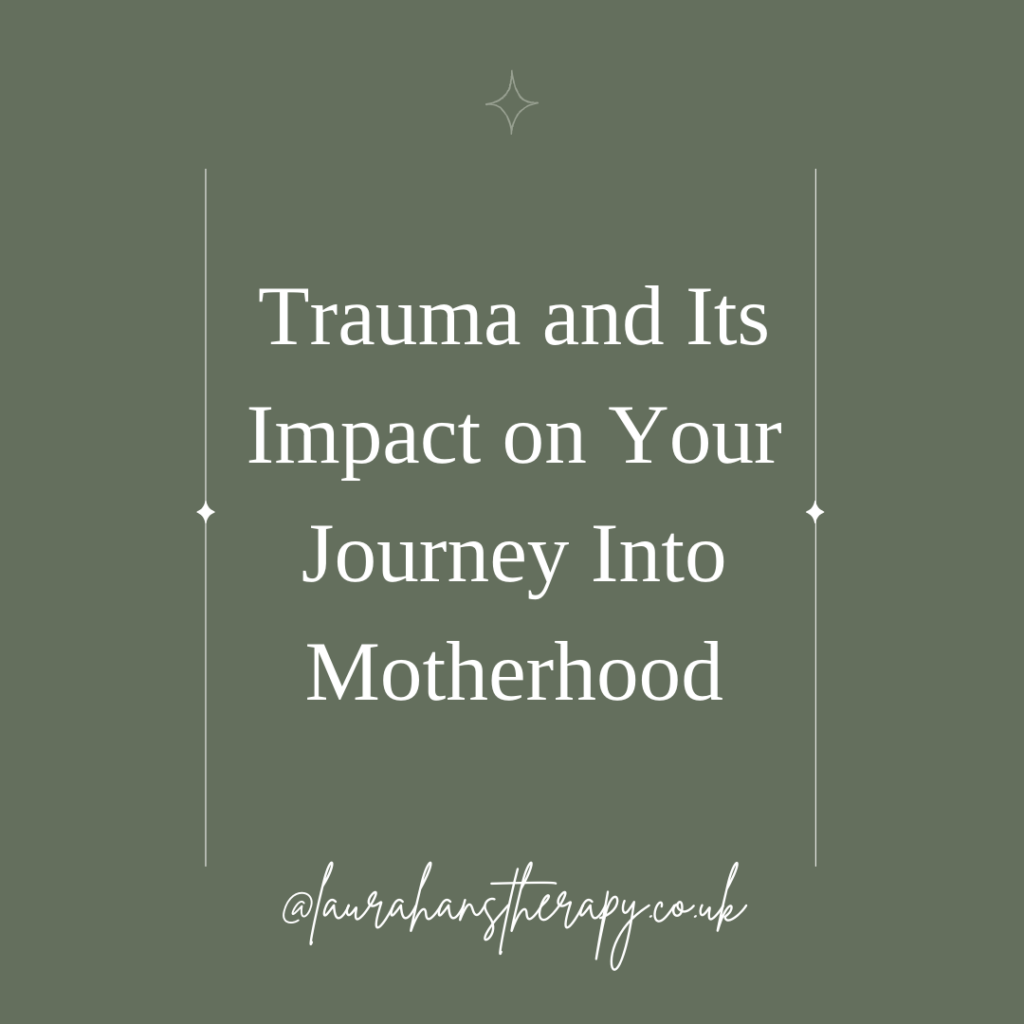If you’ve experienced trauma in any format prior to becoming a mother, you are more likely to experience part {or parts} of your motherhood journey as traumatic too. This could include your journey to conceive, your pregnancy, birth or the postpartum period.
Trauma and The Window of Tolerance
Trauma is not what happens to us – it’s what happens inside of us because of the things we go through. This is a process you have no control over. We can’t predict whether someone will develop symptoms of post-traumatic stress disorder (PTSD) after experiencing an overwhelming event because no two people respond in the same way. However, it’s fair to say experiencing something traumatic can leave you with a reduced ‘window of tolerance’.
The ‘window of tolerance’ is a helpful way to describe the best emotional ‘zone’ for us to be in to function well. When we are within our window of tolerance, we are emotionally regulated and have the capacity to cope with everyday things. Internal or external stressors can cause us to move outside of our window of tolerance.
Outside our window of tolerance, we can become hyperaroused or hypoaroused. The latter creates a sense of safety by shutting down while the former creates a sense of safety though vigilance. While these responses can initially serve a protective purpose, chronic states of dysregulation can cause all sorts of issues.
Hyperarousal looks like:
- Rage (read Understanding Mum Rage for more on this specifically in relation to motherhood)
- Feeling angry, panicky, irritable and/or anxious.
- Feeling hypervigilant (constantly assessing potential threats), overwhelmed, and/or ready to fight or escape.
Hypoarousal looks like:
- Feeling withdrawn, flat, shut down, depressed, or disconnected.
Having a smaller ‘window of tolerance’ makes us more likely to experience subsequent trauma. We have a reduced capacity for emotional stress and tend to be less resilient than those who have never experienced an overwhelming, traumatic event.
Becoming a Mum After Childhood Trauma
When we have a stressful or dysfunctional start to life, it can have a huge impact on the way we grow and develop in terms of our brain, our personality and our belief system about ourselves, others and the world around us.
Childhood trauma takes many forms, but in basic terms it occurs when a child witnesses or experiences overwhelming negative events. These can occur interpersonally {between people) or as events in a child’s life. Some examples of childhood trauma include:
- Abuse, neglect or exploitation
- Unmet core emotional needs (for example, due to having a caregiver that wasn’t emotionally attuned to you and your needs)
- Bullying
- Witnessing or experiencing domestic violence
- Divorce, separation or the imprisonment of a parent/caregiver
- Forced adoption
- Sudden or violent loss of a loved one
- Natural disasters, terrorism or war
- Medical procedures
- Exposure to frightening or inappropriate content
If you had a difficult early life, you’re more likely to struggle with challenging life events as an adult. Having a baby of your own could also activate past pain. There are a number of possible reasons for this. For example, in trying to give your baby a different upbringing to the one you had, you may be reminded of not having your needs met by your caregivers. Seeing your parents treat your baby the same dysfunctional way they treated you could have a similar effect.
The Impact of Other Forms of Trauma
Regardless of the cause, we know that experiencing a traumatic event can shape our views and affect our emotions. It can also affect our bodies, leading to physical sensations that impact our daily lives. It can affect our relationship with ourselves and with others, and even our relationship with our baby. It’s not uncommon for mothers to be diagnosed with postnatal depression when in fact trauma is the root of their symptoms. Read Is It Postnatal Depression or Is It Childhood Trauma? for more on this.
Navigating Motherhood After Trauma
However difficult things feel right now, there is hope. With trauma, I believe the only way out is through. You must work through it in order to heal. This is where you need the support of a trained therapist who has experience working with trauma.
Beyond this, being gentle with yourself is key. The more trauma you have experienced in your life, the longer it will take to heal emotionally and physically from what has happened to you. This requires gentleness and patience. It also requires self-compassion and the ability to lean into suffering without judging yourself.
Find Out More
If you’re struggling with your journey into motherhood for any reason and it’s affecting your mental health, I can help. Reach out for support by booking a consultation here or subscribe to The Nurture Toolkit for free, actionable advice straight to your inbox. I also share lots of tips and advice via Instagram.
Useful Links
Mum Guilt – What to Do When You Feel Like a Bad Mum
Am I Going to Screw Up My Kids? – A Therapist’s Perspective
